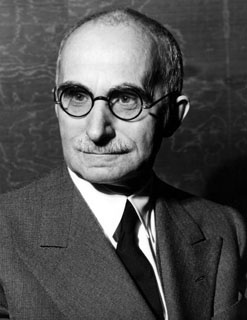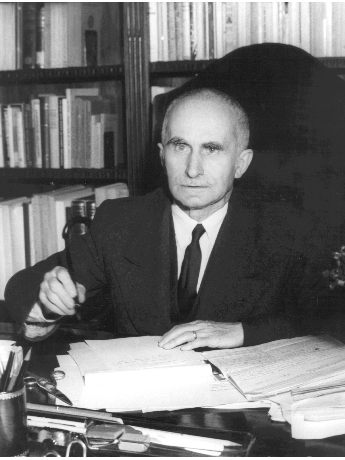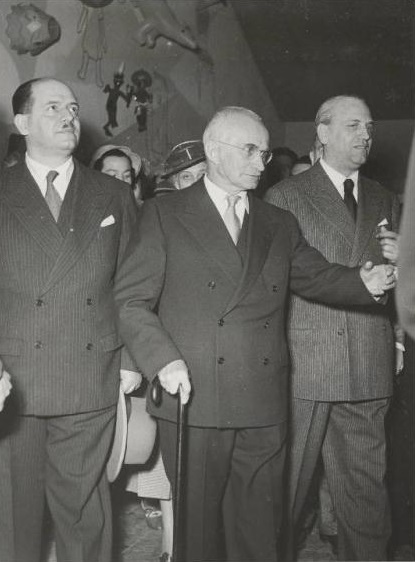<Back to Index>
- 2nd President of Italy Luigi Einaudi, 1874
PAGE SPONSOR



Luigi Einaudi (March 24, 1874 - October 30, 1961) was an Italian politician and economist. He served as the second President of the Italian Republic between 1948 and 1955.
Einaudi was born to Lorenzo and Placida Fracchia in Carrų, in the province of Cuneo, Piemonte. In Turin he attended Liceo classico Cavour and completed his university studies; in the same years he became acquainted with socialist ideas and collaborated with the magazine Critica sociale, directed by the socialist leader Filippo Turati. In 1895, after overcoming financial difficulties, he graduated in jurisprudence, and was later appointed as professor in the University of Turin, the Polytechnic University of Turin and the Bocconi University of Milan.
From the early 20th century Einaudi moved increasingly towards a more conservative stance. In 1919 he was named Senator of the Kingdom of Italy. He also worked as a journalist for important Italian newspapers such as La Stampa and Il Corriere della Sera, as well as being financial correspondent for The Economist. An antifascist, he stopped working for Italian newspapers from 1926, under the Fascist regime, resuming his professional relationship with the Corriere della Sera after the fall of the regime in 1943. After the Armistice (September 8, 1943) he fled to Switzerland, returning to Italy in 1944.
Einaudi was Governor of the Bank of Italy from January 5, 1945 until May 11, 1948, and was also a founding member of the Consulta Nazionale which opened the way to the new Parliament of the Italian Republic after World War II. Later he was Minister of Finances, Treasury and Balance, as well as Vice Premier, in 1947 - 1948.
On May 11, 1948 he was elected the second President of the Italian Republic.
At the end of the seven year term of office in 1955 he
became Life Senator.
Einaudi was a member of numerous cultural, economic and
university institutions. He was a supporter of the ideal
of European Federalism.
Einaudi personally managed the activities of his farm near Dogliani, producing Nebbiolo wine, for which he boasted to be using the most advanced agricultural developments. In 1950, monarchist satirical magazine Candido published a cartoon in which Einaudi is at the Palazzo Quirinale, surrounded by a presidential guard of honor (the corazzieri) of giant bottles of Nebbiolo wine, each labeled with the institutional logo. The cartoon was judged a lese-majesty by a court of the time, and Giovannino Guareschi, as the director of the magazine, was held responsible and sentenced.
Luigi Einaudi died in Rome in 1961.
Both his son Giulio, a prominent Italian publisher, and his grandson, Ludovico, a New Age musician, have subsequently made names for themselves.
Another son, Mario, was a Cornell University professor and active antifascist. The Mario Einaudi Center For International Studies is named after him. Additionally, Mario founded the Fondazione Luigi Einaudi in Turin in honor of his father.